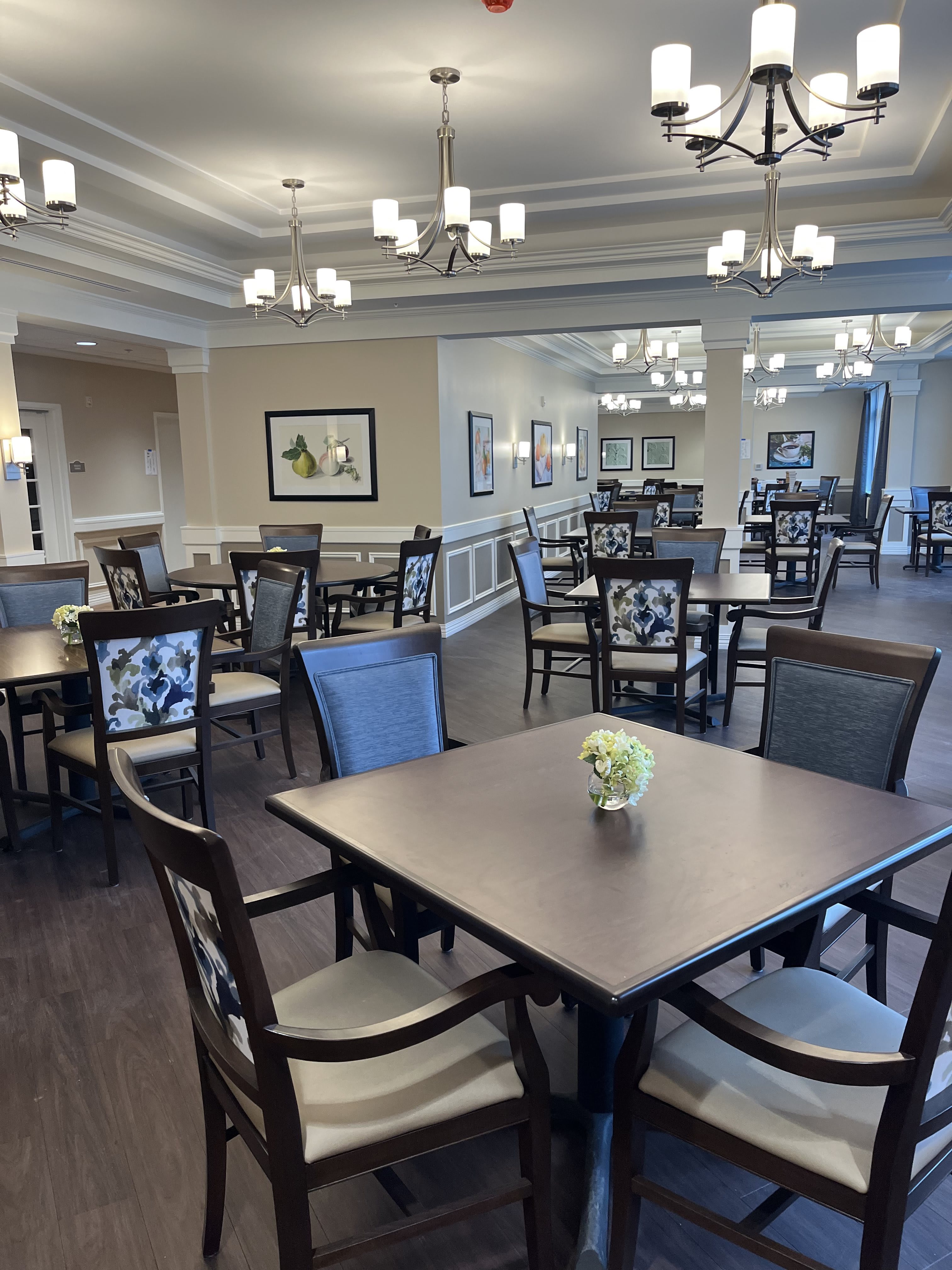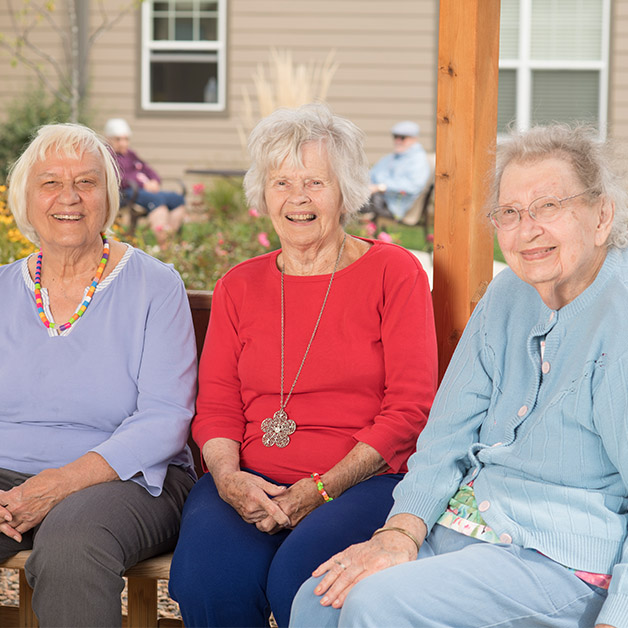Premier Charlotte Memory Care: Specialized Senior Citizen Care Solutions
Premier Charlotte Memory Care: Specialized Senior Citizen Care Solutions
Blog Article
Producing a Safe and Supportive Environment: In-Home Memory Treatment Fundamentals
Establishing a secure and nurturing atmosphere for individuals calling for at home memory care is paramount to their health and high quality of life. From guaranteeing safety within the home to using efficient communication strategies and carrying out memory-friendly design components, there are vital components that add to an alternative care strategy. By focusing on developing a helpful community that accommodates the distinct needs of those with memory problems, caretakers can dramatically improve the daily experiences of their loved ones.

Safe Living Environment
Producing a hazard-free and secure living environment is vital when giving in-home memory care for individuals with cognitive disabilities. Making certain the safety of the individual with memory loss is important to protect against crashes and promote a sense of well-being.
Furthermore, using technology such as activity sensors and alarms can signal caretakers if the individual wanders or is in distress. By focusing on security steps and removing possible risks, caregivers can supply a encouraging and protected environment for people with cognitive impairments obtaining in-home memory treatment.
Efficient Interaction Methods
Executing customized communication approaches is necessary in fostering purposeful interactions with people with cognitive impairments in the context of at home memory care. Efficient interaction plays a vital role in producing a supportive atmosphere that boosts the well-being and lifestyle for people with memory issues. When interacting with someone experiencing cognitive decline, it is vital to use clear and simple language, preserve a tranquility and positive tone, and supply aesthetic cues to help understanding.
One key technique is to exercise energetic listening, showing empathy, perseverance, and regard throughout discussions. Non-verbal signs such as facial expressions and body language can additionally help convey understanding and assistance. In addition, using reminiscence therapy by reviewing past experiences or utilizing songs and art can use long-lasting memories, triggering links and boosting engagement.
Additionally, including normal regimens and regular interaction patterns can provide a sense of familiarity and safety and security for individuals with memory disabilities. By carrying out these interaction methods, caregivers can establish meaningful links and advertise a feeling of convenience and trust fund in the at home memory treatment setting.
Memory-Friendly Style
Provided the importance of producing a supportive environment for individuals with memory concerns via efficient communication techniques, the incorporation of memory-friendly design elements in the space comes to be important in optimizing their daily experiences and total health. Memory-friendly style focuses on enhancing safety, convenience, and self-reliance for individuals with cognitive problems. Straightforward adjustments can make a considerable difference, such as making use of contrasting colors to improve presence and minimize confusion, including clear signage to aid navigating, and reducing clutter to stop sensory overload.
Integrating acquainted elements from the click reference individual's past, such as personal pictures or favored items, can evoke positive memories and produce a sense of experience. By incorporating these memory-friendly layout elements, caregivers can supply a supportive and safe living area that allows people with memory concerns to keep their freedom and quality of life. Charlotte Memory Care.
Daily Routine Planning
When establishing a daily regimen for individuals with memory issues, mindful preparation is vital to support their cognitive function and total health. Establishing an organized timetable can assist reduce confusion, anxiousness, and disorientation usually experienced by those with memory disabilities.
Adaptability is key, as some days may call for adjustments based on the individual's mood and energy degrees. Regularly Recommended Site assessing and adjusting the day-to-day timetable will certainly help ensure its effectiveness in promoting a calming and favorable setting for people with memory challenges.
Support Group Implementation
Establishing a robust network of supportive individuals plays a critical role in enhancing the quality of care and well-being for individuals requiring memory assistance. Household participants, friends, healthcare professionals, and community sources can all add to developing a solid support system. Communication among these people is essential to ensure that the demands of the specific with memory difficulties are satisfied efficiently.
Family members are often the primary caretakers and develop the backbone of the assistance system. They offer daily treatment, emotional assistance, and friendship. When required to prevent fatigue and guarantee the ideal possible treatment for their loved one., it is critical for family participants to seek help and respite.
In enhancement to family support, entailing health care specialists such look at this site as specialists, doctors, and nurses can supply customized care and support. These specialists can offer useful understandings, medical guidance, and aid in managing the individual's condition.

Verdict
In conclusion, creating a encouraging and secure setting for individuals with memory care needs is vital for their wellness. By developing a secure living setting, making use of reliable interaction strategies, incorporating memory-friendly design elements, planning daily routines, and implementing a strong support group, caregivers can help boost the top quality of life for those with amnesia. These essential components function with each other to develop a nurturing and encouraging atmosphere that promotes self-reliance and enhances overall lifestyle.
Creating a hazard-free and safe and secure living setting is extremely important when supplying at home memory care for people with cognitive disabilities. By prioritizing safety measures and getting rid of possible dangers, caregivers can provide a secure and encouraging environment for people with cognitive disabilities getting in-home memory treatment.
Developing a durable network of encouraging individuals plays a pivotal duty in improving the quality of treatment and wellness for individuals calling for memory support - Charlotte Memory Care. Interaction amongst these individuals is crucial to make sure that the needs of the specific with memory difficulties are met properly

Report this page